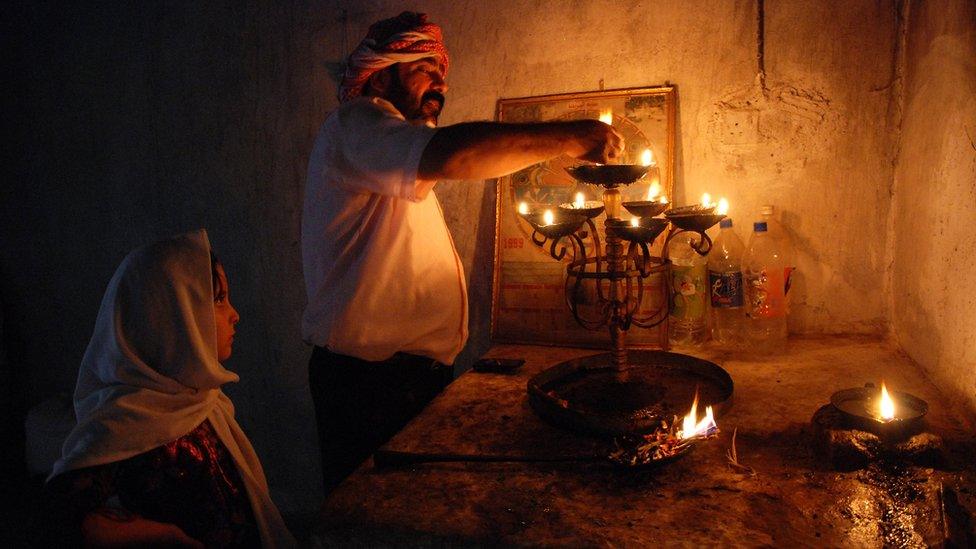Iraq: UN sounds alarm on humanitarian crisis
- Published
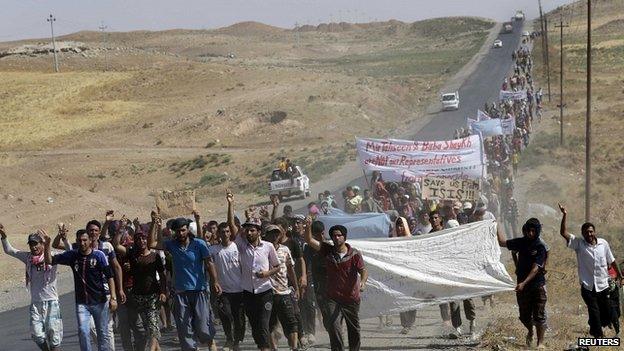
The crisis in Iraq has caused more than a million Iraqis to be displaced, the UN estimates
The UN has declared its highest level of emergency in Iraq as a humanitarian crisis follows the advance by Islamic State (IS) militants in the north.
Kurdish officials said the situation in Dohuk city, with 150,000 refugees, was now critical.
But the US said a rescue mission to aid thousands who fled to Mount Sinjar was unlikely as it had found fewer people and better conditions than expected
The UN estimates that 1.2 million Iraqis have been internally displaced.
The three other countries that have the same emergency status are Syria, South Sudan and the Central African Republic.
Speeding up response
The declaration by the UN of a "Level 3 Emergency" would "facilitate mobilisation of additional resources in goods, funds and assets" to support the humanitarian operation, said UN special representative Nickolay Mladenov.
The situation of displaced people on Mount Sinjar remained critical, he said.
The UN had estimated , externalthat tens of thousands of people, most from the Christian and Yazidi religious minorities, were besieged on the mountain after being forced to flee their homes.
But US forces sent to Mt Sinjar found fewer people than expected - partly because thousands had left the mountain each night over the past days.
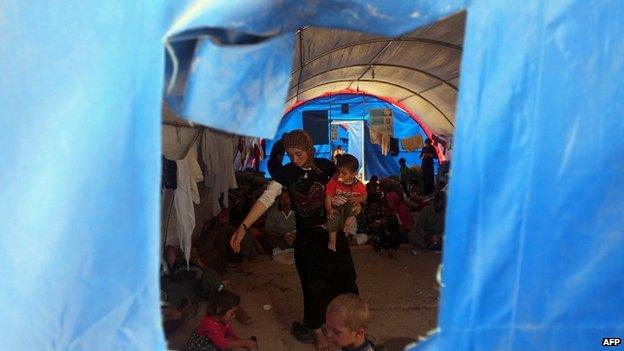
Some Yazidis have taken refuge at a camp in Dohuk province
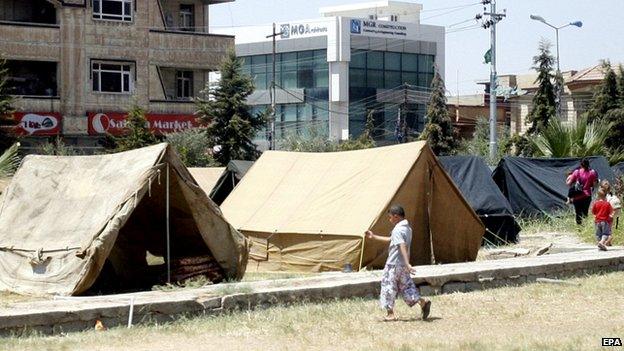
Other religious minorities have also had to flee their homes, like these Christians in Irbil
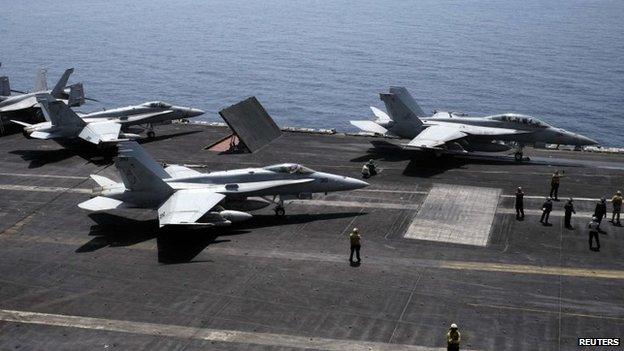
The US has been carrying out air strikes on IS targets
The US says it will continue to provide humanitarian assistance and it conducted its seventh air drop of food and water on Wednesday. It has also continued to conduct air strikes on IS targets.
Bayan Abdul Rahman, who represents the Kurdish regional government in the UK, said the number of trapped refugees should be no excuse for inaction. They should be rescued whether there were "5,000 or 50,000" of them, he said.
The situation in the region was "fluid" and there was no guarantee that IS fighters won't attack again, he added.
Harrowing escape
Hamad, a Yazidi who managed to escape with his family, told the BBC that his mother had died during their long journey to Dohuk.
"There was no food. We were exhausted after a lot of walking and climbing high, steep roads," he said, adding that his mother eventually said she could go no further.
"We refused to leave without her. After a few hours of thirst, hunger and exhaustion, she fell and passed away."
Kurdish officials in Dohuk told the BBC's Frank Gardner some 150,000 refugees had arrived, overwhelming the local population who are trying to feed them.
Kurdistan government spokesman Dindar Zebari: The situation on Mt Sinjar requires an "urgent, urgent response"
James Robbins reports on the humanitarian crisis which is becoming more apparent as each day passes
In another development, the governor of Anbar province - large parts of which have been under militant control for months - has asked for US air support and other assistance, Reuters reports.
France says it will arm Iraq's Kurds, who are already getting US military aid to fight IS. Meanwhile, the UK has pledged to join a rescue mission for displaced civilians.
The rapid IS advance across Iraq has thrown the country into chaos.
On 29 June, the group said it had created a caliphate, or Islamic state, stretching from Aleppo in Syria to the province of Diyala in Iraq.
Yazidis revere the Bible and Koran - but much of their tradition is oral
Iraq's military response to the threat has been hampered by political chaos in Baghdad.
Prime Minister Nouri Maliki's coalition won the most seats in April's elections but parliament has not agreed to give him a third term.
Earlier this week, Iraq's president asked the deputy speaker of parliament, Haider al-Abadi, to form a new government but Mr Maliki vowed to contest the move in court.
Former Foreign Minister Hoshyar Zebari, who served under Mr Maliki until last month, said Iraq's prime minister has no choice but to "accept the wishes of the majority of Iraqis".
"We are hopeful Maliki will be more realistic and save face," he told the BBC.
Mr Zebari also dismissed fears that Iraq could fall apart, saying the Kurdish leadership had "decided to be part of the new government".
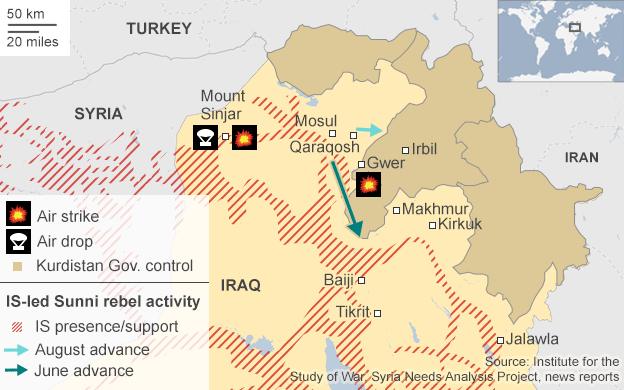
- Published14 August 2014
